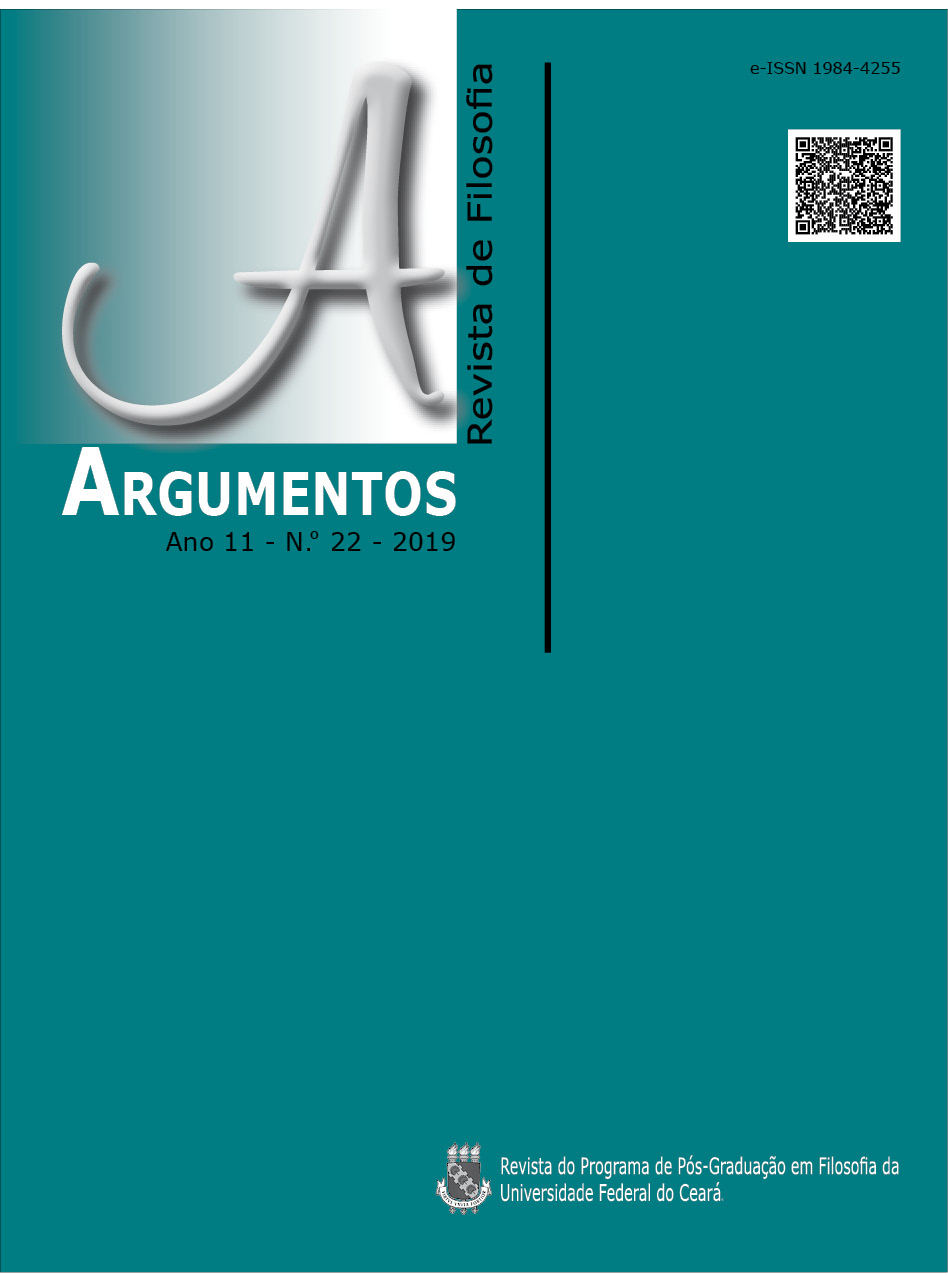Slow motion theory in fragment of secret doctrine in Plato’s Theaetetus
DOI:
https://doi.org/10.36517/Argumentos.22.5Keywords:
Movements. Slow movements. Sensations. Secret doctrine. Thaetetus and power.Abstract
In this article we will work on the notion of slow movements in the fragment of the secret doctrine, which constitute the power to become, the foundation for the generation of qualities in the reality perceived by sensations. Slow movements are quoted in the Theaetetus on the passage 156a, in the fragment which we call here the secret doctrine of the thinkers of nominee found at the beginning of the second answer to Theaetetus in the Platonic dialogue of the same name. The importance of bringing this study to this category of movement is to observe that Plato, though briefly as it appears in the fragment, observed the existence of two movements in the generation of sensations, a slow and a rapid, the first being what we mean by the power of being, without which nothing could become what it will actually be. Plato showed in this passage that the formation of a sensation is something much more complex than imagined the mobilists, with understandings that embrace a momentaneity and a deep fugacity in this formation, being outside the thing or the percipient, since it occurs between both, between the percipient, and the perceived thing, different from, for example, Protagoras would imagine. We will show in this research that from what Plato describes as the formation of the sense/quality pair we see the possibility of a vast and complex theory about what one should understand about the changing in the field of physical things and their due sensations, concentrating on the movement first, characterized as being the condition of possibility for something to become, a power.References
BUCKELS, Christopher. Flux Capacities: A Casual Theory Reading of the Secret Doctrine in Plato’s Theaetetus. Society of Ancient Greek Philosophy Newsletter, December, 2014.
CORNFORD, Francis M. Plato´s theory of knowledge. New York: Liberal Arts Press, 1957.
NAKHNIKIAN Plato’s Theory of Sensation I. The Review of Metaphysics vol.9, nº1, September, 1955.
MUNIZ. Fernando. A Doutrina da Aisthesis no Teeteto de Platão. Revista O que nos faz pensar nº 24. PUC-Rio, 2008.
PLATÃO. Teeteto. Fundação Calouste, Lisboa, 2010.
Downloads
Published
Issue
Section
License
Argumentos magazine is licensed under an International Creative Commons Attribution License.
The Magazine uses CC BY inclusion
1) The authors retain the copyright granted to the magazine or the right to initial publication, with the work regularly licensed under the Creative Commons Attribution, which allows the sharing of the work with acknowledgment of authorship and initial publication in this magazine.
2) The authors are authorized to contract additional applicable contracts, for non-exclusive distribution of the version of the work published in this journal (for example, publication in the institutional repository or as a chapter of the book), recognition of authorship and initial publication in this journal.
3) Authors are authorized and encourage to publish and distribute their work online (for example, in institutional repositories or on their personal pages) at any time before or during the editorial process, as they can generate productive changes, as well as increase the impact and reference of published work.




.jpg)










._._3.png)
1.jpg)
._._._.png)
